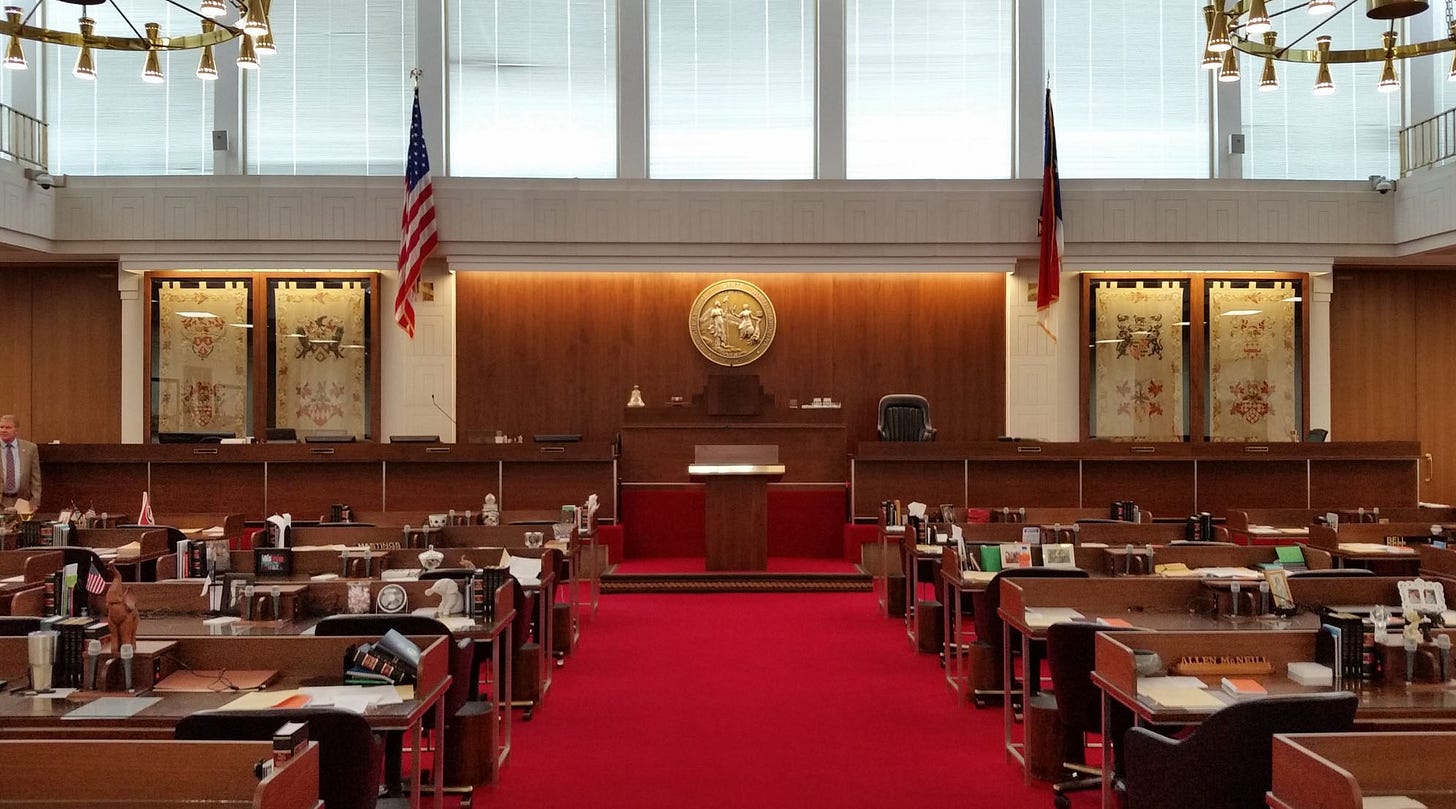NC Senate Passes Bill Restricting Attorney General’s Power to Challenge Presidential Orders
Bill could alter how North Carolina responds to federal executive orders, raising concerns about state autonomy, the balance of power, and government accountability.
Holly Springs, NC, Mar. 14, 2025 — A new Bill making its way through the North Carolina legislature could significantly alter the state’s ability to challenge federal executive actions. Senate Bill 58 (SB 58), sponsored by Republican Senators Tim Moffitt (Henderson) and Bobby Hanig (Currituck), passed the state Senate in a 29-19 vote on March 12. The bill, now headed to the North Carolina House of Representatives, seeks to prevent the state’s attorney general from taking legal action against executive orders issued by the President of the United States.
What SB 58 Would Do
If enacted, the bill would bar North Carolina’s Attorney General—currently Democrat Jeff Jackson—from initiating or joining lawsuits aimed at invalidating presidential executive orders in state or federal court. Supporters argue that this measure ensures the attorney general does not overstep their authority in legal battles against federal actions. However, critics see it as an unprecedented political move that weakens the office’s ability to protect the interests of North Carolinians.
Next Steps and Potential Veto
With Senate approval, SB 58 will now be considered in the North Carolina House. If it passes, it will go to Governor Josh Stein, a Democrat, who is widely expected to veto the bill. If Stein vetoes SB 58, the legislature would need a three-fifths majority in both chambers to override it. Given the current political landscape, the success of a veto override remains uncertain.
Long-Term Impacts for North Carolina
If SB 58 becomes law, it could fundamentally alter how North Carolina responds to federal executive orders, raising concerns about state autonomy, the balance of power, and government accountability.
One significant consequence is the potential weakening of the state’s ability to challenge federal overreach, regardless of who is in the White House. The attorney general serves as North Carolina’s chief legal officer, and removing their ability to challenge presidential executive orders could limit the state’s ability to defend itself against policies that may not align with its interests. Whether those policies concern environmental protections, healthcare, business regulations, or civil rights, the attorney general has historically played a key role in protecting North Carolina’s position in legal disputes with Washington.
This role is not hypothetical. North Carolina governors and attorneys general have previously taken legal action to push back against federal policies. Under Republican Governor Pat McCrory, the state defended House Bill 2 (HB2), also known as the “Bathroom Bill,” against a federal challenge from the U.S. Department of Justice. McCrory argued that HB2, which restricted bathroom access based on birth sex, was a matter of state sovereignty, leading to a high-profile legal battle with Washington. Conversely, under Democratic Governor Roy Cooper, North Carolina joined other states in opposing the Trump administration’s attempt to add a citizenship question to the 2020 Census, arguing that such a move would lead to an undercount and negatively impact the state’s federal funding and representation. These cases illustrate how state officials—regardless of party—have used legal challenges to defend policies they believe protect North Carolinians.
Additionally, SB 58 raises broader concerns about the long-term impact of legislative power shifts. By restricting the attorney general's authority now, the bill sets a precedent that could be used in the future to limit other state officials. This pattern could lead to an erosion of checks and balances in North Carolina, concentrating more power in the legislature and reducing the ability of state officials to act independently on behalf of residents.
There is also the risk that political maneuvering like this could lead to increasing voter disillusionment. When legislative actions appear to be motivated more by partisan control than governance, it can discourage civic engagement and erode trust in state institutions. Many North Carolinians expect their leaders to act in the state's best interests, and limiting legal tools that ensure federal accountability could raise concerns about whether the government is serving its people effectively.
Ultimately, SB 58 has the potential to reshape the way North Carolina interacts with federal authority, with consequences that could extend far beyond the current political moment.
Residents of Holly Springs who wish to weigh in on the bill can follow its progress through the state legislature and contact their representatives to share their views:
North Carolina House of Representatives:
Representative Erin Paré (District 37)
Contact Information:
Email: Erin.Pare@ncleg.gov
North Carolina Senate:
Senator Sydney Batch (District 17)
Party Affiliation: Democrat
Email: Sydney.Batch@ncleg.gov

